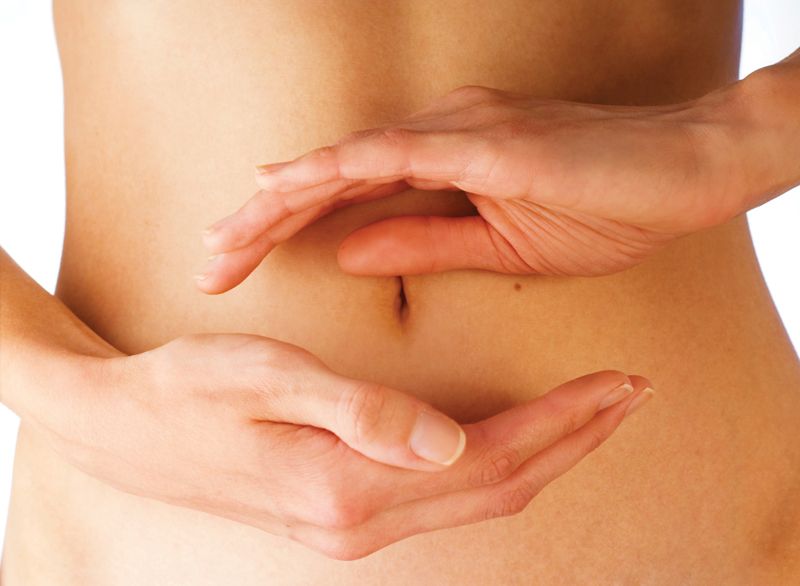Phospholipid Ingredient Blend Reduces PMS Symptoms in New Study
The Lipogen PMS ingredient improved PMS symptoms on four fronts: emotional, physical, cognitive, and social.
Photo © iStockphoto.com/VikaValter

Lipogen PMS, a complex of phosphatidylserine (PS) and phosphatidic acid (PAS), reduced symptoms of premenstrual syndrome (PMS) in a new study.1 The study’s results were recently published in the journal Clinical Nutrition ESPEN. In the study, the Lipogen PMS ingredient from Lipogen (Galilee, Israel) was shown to help relieve or reduce both physical and emotional symptoms associated with PMS.
PMS, or the somatic and psychological symptoms occurring during the luteal phase of the menstrual cycle, affects roughly half of women within their reproductive age, according to the study’s researchers. Some of the most common symptoms of PMS include fatigue, irritability, mood changes, bloating, skin conditions, and breast tenderness. The reported prevalence of PMS symptoms increased during the five years of 1996-2001-a trend that the researchers say has likely continued in the years since. Finally, while PMS is the most common menstrual-related disorder, the more severe premenstrual dysphoric disorder (PMDD) affects between 3%-8% of women, while symptoms similar to PMS can be triggered in women after menopause, as well.
In this double-blind, randomized, placebo-controlled study conducted with 40 women aged 18-45 who were diagnosed with PMS, researchers sought to establish whether supplementation with Lipogen over three menstrual cycles could alleviate some of the symptoms associated with PMS. The primary outcome of the study-to assess whether PMS symptoms could be lessened through supplementation with Lipogen-was measured via the German Daily Record of Severity of Problems (DRSP) questionnaire, which the subjects completed each evening of the study.
The study period included five on-site visits, including a baseline observational cycle. During the baseline observational cycle, researchers measured participants’ body mass index (BMI), blood pressure, and heart rate. They also took blood samples to assess serum progesterone, estradiol, and corticosteroid binding globulin (CBG) and cortisol levels, and collected saliva samples to assess salivary cortisol levels. Following the initial assessment visit, subjects were instructed to collect their own saliva during both the follicular phase and luteal phases of their menstrual cycles.
Each evening, subjects completed the DRSP questionnaire, which contains 24 items assessing severity of complaints for psychological symptoms like depression, anxiousness, mood swings, irritability, and difficulties in concentration, as well as for physiological symptoms like breast tenderness, headache, or weight gain. Subjects rated the degree to which they experienced those symptoms on a scale of 1 (not at all) to 6 (extreme).
At the second visit, researchers assessed a questionnaire for baseline information on PMS, the German Screening-Instrument fuer Praemenstruelle Symptome (SIPS). Also at the second visit, the study group was given four capsules of the Lipogen complex of 400 mg phosphatidylserine (PS) and 400 mg phosphatidic acid (PA), which they were instructed to consume once per day during the following menstrual cycle. The control group was given the equivalent dosage of a placebo. At visits three and four, the SIPS assessment was repeated, and subjects were given either the Lipogen complex or the placebo. At the final visit, researchers collected saliva samples, and assessed subjects’ SIPS, blood pressure, heart rate, and BMI. In addition, the researchers collected a post-treatment blood sample for serum progesterone, estradiol, CBG, and cortisol levels. All visits took place during the follicular phase of the subjects’ menstrual cycles.
At the end of the five-visit study period, researchers observed a significant reduction in severity of PMS symptoms for the Lipogen group compared with the placebo group. Per the DRSP questionnaire total score calculation, PMS symptoms in the placebo group decreased by roughly 8.92%, while the PMS symptoms for the Lipogen group decreased by 19.4%. The Lipogen group also reported a more significant reduction in the physical symptoms than in the depressive symptoms associated with PMS compared with the placebo group. Subjects’ reported levels of anger did not differ between the Lipogen and placebo groups; however, the subjects given Lipogen reported a lower reduction in productivity compared with the control group, as well as a decrease in interference with outside relationships.
Serum cortisol levels increased about 19.77% within the placebo group and decreased about 2.72% within the Lipogen group, reaching statistical significance, but the researchers report that no significant differences between groups were found for any of the further salivary cortisol measures, CBG, estradiol, and progesterone, or for the SIPS outcomes. Although results did not reach statistical significance for all study outcomes, possibly due to irregular cycle lengths and thus, inaccurate sampling time, the study results indicate that the PAS complex, Lipogen, may alleviate some symptoms of PMS. According to the authors, the results from this study indicate that, in addition to helping relieve PMS symptoms, Lipogen may also have potential for reducing more severe PMDD symptoms.
Of the study results, David Rutenberg, CEO, Lipogen, commented in a press release: “This breakthrough research in relieving women’s PMS symptoms is relevant to a large segment of the population. The new Lipogen PMS product may help women as a natural solution for controlling PMS symptoms.”
In the press statement, the company noted that Lipogen PMS, patented in the U.S., Europe, and Japan, has earned both Generally Recognized as Safe (GRAS) status from FDA and Novel Food approval from the European Food Safety Authority (EFSA).
Also read:
Lipogen Phospholipid Formulation Granted Patent for PMS Relief
References:
- Schmidt K et al., “A lecithin phosphatidylserine and phosphatidic acid complex (PAS) reduces symptoms of the premenstrual syndrome (PMS): Results of a randomized, placebo-controlled, double-blind clinical trial,” Clinical Nutrition ESPEN, vol. 24 (February 2018): 22-30